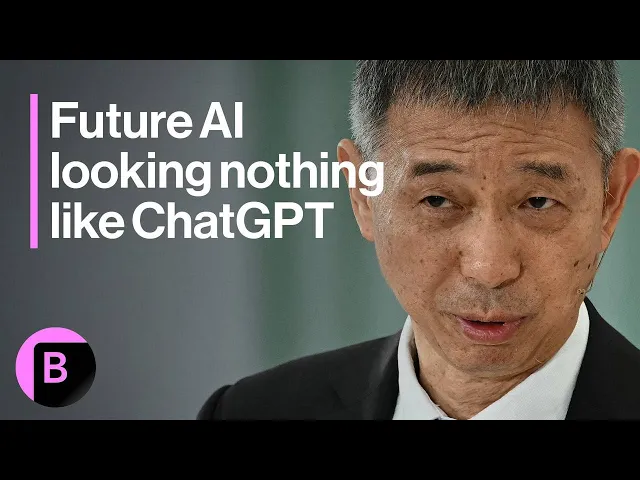Alibaba Cloud Founder Expects Big AI Shakeup After OpenAI Hype

AI's real inflection point beyond OpenAI's hype
In the rapidly evolving landscape of artificial intelligence, we're witnessing what may be the calm before a revolutionary storm. A recent interview with Alibaba Cloud founder revealed critical insights about AI's trajectory beyond the current OpenAI-dominated narrative. His perspective offers a refreshing counterpoint to the hype cycle, suggesting we're approaching a more meaningful inflection point in AI development.
Key insights from Alibaba's founder:
-
The real AI revolution hasn't happened yet – Despite all the buzz around ChatGPT and large language models, we're still in early stages with genuinely transformative AI breakthroughs yet to come.
-
Two paths forward exist for AI development – The first involves enhancing existing models through more data and computing power, while the second requires fundamental innovation in AI algorithms and architecture.
-
China and the US are pursuing different AI strategies – While US companies focus on general-purpose AI models, Chinese firms are developing specialized, industry-specific applications tailored to business needs.
-
Real-world implementation matters more than theoretical capabilities – The true value of AI will emerge from how it's applied to solve specific business problems rather than general intelligence achievements.
-
AGI remains a distant goal – Despite impressive advances, artificial general intelligence that rivals human capabilities across domains remains theoretical rather than imminent.
Expert Analysis: The implementation gap
The most compelling insight from Alibaba's founder concerns what I'd call the "implementation gap" in AI. While companies rush to showcase increasingly sophisticated models, the practical deployment of AI solutions in business contexts lags significantly behind. This disconnect between capability and implementation represents both the industry's greatest challenge and its most promising opportunity.
This matters tremendously because it shifts our focus from theoretical AI capabilities to practical value creation. The companies that will dominate the next phase of AI development won't necessarily be those with the most advanced models, but those who can effectively translate AI capabilities into business outcomes. This explains why enterprise-focused AI applications are gaining traction while consumer applications like chatbots grab headlines but struggle with monetization.
Beyond the hype: What wasn't said
The interview notably omitted discussion of AI's environmental impact – a critical concern as model training demands ever-increasing computational resources. OpenAI's GPT-4 reportedly
Recent Videos
How To Earn MONEY With Images (No Bullsh*t)
Smart earnings from your image collection In today's digital economy, passive income streams have become increasingly accessible to creators with various skill sets. A recent YouTube video cuts through the hype to explore legitimate ways photographers, designers, and even casual smartphone users can monetize their image collections. The strategies outlined don't rely on unrealistic promises or complicated schemes—instead, they focus on established marketplaces with proven revenue potential for image creators. Key Points Stock photography platforms like Shutterstock, Adobe Stock, and Getty Images remain viable income sources when you understand their specific requirements and optimize your submissions accordingly. Specialized marketplaces focusing...
Oct 3, 2025New SHAPE SHIFTING AI Robot Is Freaking People Out
Liquid robots will change everything In the quiet labs of Carnegie Mellon University, scientists have created something that feels plucked from science fiction—a magnetic slime robot that can transform between liquid and solid states, slipping through tight spaces before reassembling on the other side. This technology, showcased in a recent YouTube video, represents a significant leap beyond traditional robotics into a realm where machines mimic not just animal movements, but their fundamental physical properties. While the internet might be buzzing with dystopian concerns about "shape-shifting terminators," the reality offers far more promising applications that could revolutionize medicine, rescue operations, and...
Oct 3, 2025How To Do Homeless AI Tiktok Trend (Tiktok Homeless AI Tutorial)
AI homeless trend raises ethical concerns In an era where social media trends evolve faster than we can comprehend them, TikTok's "homeless AI" trend has sparked both creative engagement and serious ethical questions. The trend, which involves using AI to transform ordinary photos into images depicting homelessness, has rapidly gained traction across the platform, with creators eagerly jumping on board to showcase their digital transformations. While the technical process is relatively straightforward, the implications of digitally "becoming homeless" for entertainment deserve careful consideration. The video tutorial provides a step-by-step guide on creating these AI-generated images, explaining how users can transform...
